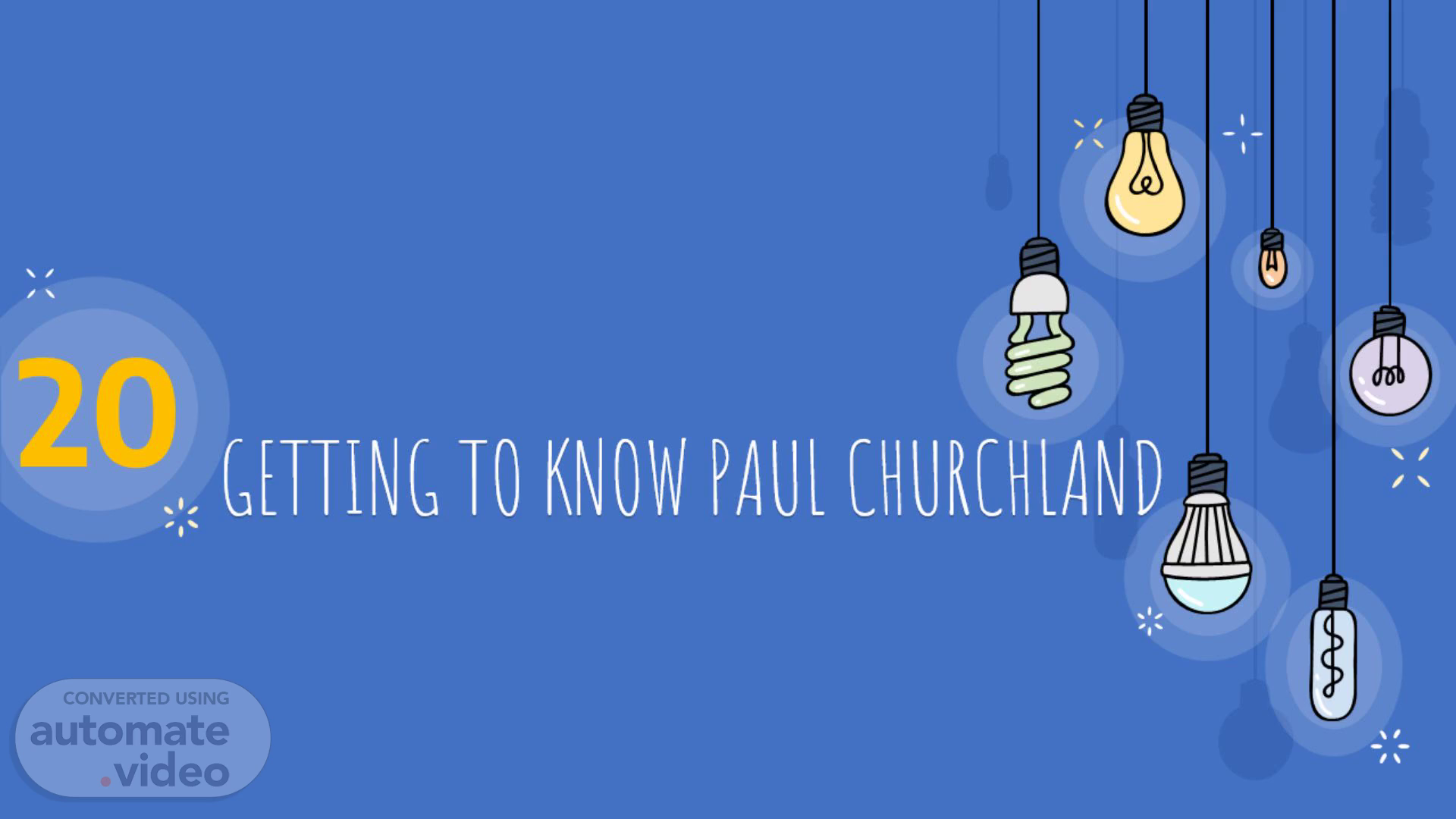Scene 1 (0s)
[Audio] Who is Paul Churchland? Watch this video to learn who is this philosopher and more importantly his views about what the self is..
Scene 2 (7s)
[Audio] Paul Montgomery Churchland is a Canadian philosopher known for his studies in neurophilosophy and the philosophy of mind..
Scene 3 (15s)
[Audio] He was born on October 21, 1942, in Vancouver, British Columbia, Canada. He graduated from the University of British Columbia with a Bachelor of Arts. Meanwhile, he earned his Doctor of Philosophy from the University of Pittsburgh in 1969.
Scene 4 (34s)
[Audio] Churchland has authored several books in philosophy, which have been translated into many languages. His most famous essay is his 1981 Eliminative Materialism and the Propositional Attitudes, which has been translated into five languages and reprinted over twenty times..
Scene 5 (50s)
[Audio] Why do people say read my mind instead of read my brain, along the same lines why is it called brain surgery instead of mind surgery. Interestingly, we can find an answer as we explore the works of Paul Churchland. Specifically his theories on self and the brain. Since Churchland is a modern day philosopher who studies the brain, let us first take a look about the older philosophical theories on the subject.
Scene 6 (1m 16s)
[Audio] For much of history many western philosophers have held to the theory of dualism. When it comes to discussing the human life, dualism is the idea that the mind and the body are separate. In other words, we all have a physical brain but we also have a separate mind. Adding to this distinction, dualist have historically asserted that the mind is the seat of our consciousness. On the contrary our brain is just an organ similar to the heart or lungs. Because the mind is the seat of our consciousness, it is what gives us our identity. It is intangible but it does exist and it is what makes self, self..
Scene 7 (1m 51s)
[Audio] To this assertion, Paul Churchland has come along and pretty much said, 'I don't think so!' Tossing aside the concept of dualism and the brain, Churchland adheres to materialism, the belief that nothing but matter exists. In other words, if it can't somehow be recognized by the senses then it's just the same to a fairy tale..
Scene 8 (2m 11s)
[Audio] Applying this argument to the mind, Churchland asserts that since the mind can't be experienced by our senses, then the mind doesn't really exist. Churchland argues that the words we use to describe our thoughts and feelings, like belief, desire, fear, and joy, don't really show what our minds are like. These words are part of "folk psychology," which confuses more than it explains. Stated simply, eliminative materialism argues that the ordinary folk psychology of the mind is wrong. Based on this assertion, Churchland holds to eliminative materialism. It is the physical brain and not the imaginary mind that gives us our sense of self. Eliminative materialists think we need new words and ideas based on neuroscience to better understand the mind and self..
Scene 9 (2m 58s)
[Audio] Working to prove his points, Churchland gives a few arguments. First, why should we believe in a mind when science is proving that mental health is connected to the physical brain? For instance, depression is strongly linked to brain chemicals. Adding to this, Churchland challenges the concept of the mind by using the misfortune of traumatic brain injury. With this, eliminative materialism asks 'if the mind is the seat of self, why does brain injury alter a person's personality?' If the mind was a real separate entity, wouldn't it retain a person's sense of self despite damage to a physical organ? Since brain damage alters a person's personality, Churchland asserts that the concept of self originates in the physical brain, not an invented mind..
Scene 10 (3m 43s)
[Audio] Churchland believes that folk psychology will be replaced by the theory of the workings of the brain and the central nervous system which comes form neuroscience. Behavior viewed as coming from beliefs and desires is considered false in eliminative materialism. Instead behaviors are a result of the interaction among neurons, synapses, ganglia and neurotransmitters. Overall Churchland argues with the theory of dualism. In eliminative materialism, Churcland proposes that our thoughts and feelings are based on science and can be explained or understood in neuroscience..
Scene 11 (4m 17s)
[Audio] Example: mental processes such as remembering, learning, finding something funny, feeling hungry, feeling dizzy are actually states of the physical brain. So materialism is the idea that all of what we think of as the mind is something that the brain does. Another example is why you feel happy or sad, a materialist will explain that it is caused by neurochemical changes..
Scene 12 (4m 41s)
[Audio] In summary, Paul Churchland is a Canadian philosopher known for his studies in neurophilosophy and the philosophy of mind. Overall Churchland argues with the theory of dualism and instead adheres to materialism, the belief that nothing but matter exists. He holds to eliminative materialism which states that it is the physical brain and not the imaginary mind that gives us our sense of self. Churcland proposes that our thoughts and feelings are based on science and can be explained or understood in neuroscience..
